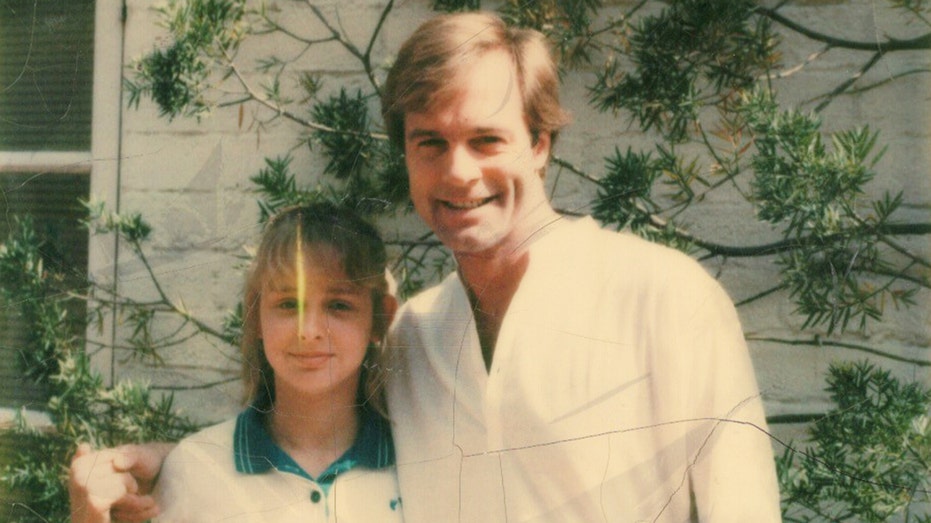Stephen Collins, known for his role as the beloved Pastor Eric Camden on the hit television series “7th Heaven,” has been embroiled in controversy following allegations of sexual misconduct. In recent developments, one of his accusers has spoken out about the emotional turmoil and the lasting impact of hearing Collins admit to his actions. This revelation has not only opened old wounds for victims of similar situations but has reignited discussions about accountability and the complexities surrounding the confessions of public figures.
During a candid interview, a woman identified as a victim of Collins’ misconduct shared her thoughts on the confession, marking the moment as a turning point in her healing journey. She described the moment when she listened to Collins’ apology and admissions as one of the most challenging experiences of her life, laden with emotional baggage and complications that shook her to her core.
“The worst part was hearing someone I had once looked up to confess to actions that were so deeply disturbing,” she expressed. “The way he spoke about it made it feel even more personal, as if he was dismissing the pain he had caused. It’s like watching someone take the very trust and love we placed in him and shred it apart.”
Collins came into the spotlight back in 2014 when allegations emerged regarding his inappropriate behavior with minors. His confession came in the wake of an audio leak that captured him admitting to multiple instances of sexual misconduct. While the fallout for Collins was significant, impacting both his personal and professional life, the ramifications for his victims have been profound and lasting.
The accuser emphasized that while Collins’ confession was a step towards accountability, it was not enough to erase the years of pain and turmoil that followed his actions. “Hearing him say those words made me feel a mix of validation and despair,” she stated. “Validation because it felt good to know that at least he recognized his wrongdoing. But despair because those words could never undo the damage.”
Since the confessions surfaced, the fallout for Collins has been extensive. He faced significant backlash from the public and lost his roles in multiple projects, including his prominent role in “7th Heaven.” The show’s reputation has also taken a hit, with many fans reevaluating their affection for a series that, while often heartfelt, now carries a dark undercurrent of betrayal.
This situation has led to broader conversations about the culture of silence that often surrounds instances of sexual misconduct, particularly in Hollywood. Many survivors of abuse have come forward to share their own stories, inspired by the courage of those who spoke out against Collins. This surge in testimonies has gradually fostered a more substantial discourse on accountability and the importance of believing victims.
Experts in mental health and trauma have weighed in on the complexities faced by accusers when confronting their past, especially in light of public confessions. They emphasize the importance of creating safe spaces where survivors can process their emotions and experiences without judgment. This discussion also highlights society’s responsibility to empower victims rather than shame them, allowing them to reclaim their narratives.
The accuser reflected on her own healing journey, stating, “It takes time to process what you’ve lived through. I’ve sought therapy, and while it doesn’t erase the memories, it helps to learn how to cope with them.” She expressed gratitude towards the movement that encourages survivors to share their stories, highlighting the solidarity it brings to those who are often left feeling isolated in their experiences.
As Collins’ case garners media attention, many advocates remain vigilant, hoping the conversation surrounding sexual misconduct does not wane but instead grows deeper and more impactful. They argue that acknowledgment and honesty from public figures about their misconduct can serve as a catalyst for conversations about prevention and support for victims.
The reality of sexual misconduct in Hollywood continues to create ripples, prompting institutions to review their policies surrounding harassment and abuse. This has led to wider calls for reform within both the entertainment industry and various sectors, with many pushing for stricter regulations and training regarding acceptable conduct in the workplace.
Meanwhile, various advocacy groups have emerged, providing resources and support for survivors of sexual abuse, emphasizing the importance of creating an inclusive environment where those affected can speak up without fear of judgment or retaliation. Several of these organizations have also taken a stand, providing educational resources focused on preventing sexual misconduct and promoting healthy interactions.
The pathway to recovery for those impacted by sexual misconduct is far from linear, and each story is unique. The recent revelations about Collins have shattered the illusion of safety that many may have felt while watching “7th Heaven” during its heyday, forcing a reckoning with the darker undercurrents of celebrity culture.
As discussions about accountability develop, they also compel society to reflect on the systemic problems that enable abusive behavior to flourish. It prompts reflections on how power dynamics can lead to exploitation, especially in industries where adoration and reverence for celebrities may overshadow the need for critical examination of their actions.
The impact of celebrities like Collins on their audiences is significant, especially when they wield power over the narratives of their public personas. Many fans have expressed feelings of betrayal, recognizing how deeply their admiration was intertwined with the trust they placed in figures who have, in some cases, ultimately let them down. This realization is a painful yet important part of the healing process for survivors.
Through the challenges faced, advocates encourage victims to share their stories in their own time, emphasizing the significance of validation and support systems. They remind society that healing is not a solitary journey; it often requires a community of understanding and respect surrounding survivors’ narratives.
The path to healing is often riddled with obstacles, yet from these painful experiences can emerge strength and resilience. For Collins’ accuser, and many others like her, the journey continues toward self-discovery, healing, and ultimately, reclaiming their voices in a society that must learn from the past to create a safer future.
In conclusion, the revelations surrounding Stephen Collins serve as a powerful reminder of the importance of accountability and the wider implications of sexual misconduct. As victims continue to come forward, society stands at a crossroads, with the opportunity to foster real change in how we address these issues. Collective action and the courage to share stories will undoubtedly play a crucial role in shaping a more responsible and supportive environment for all.
































